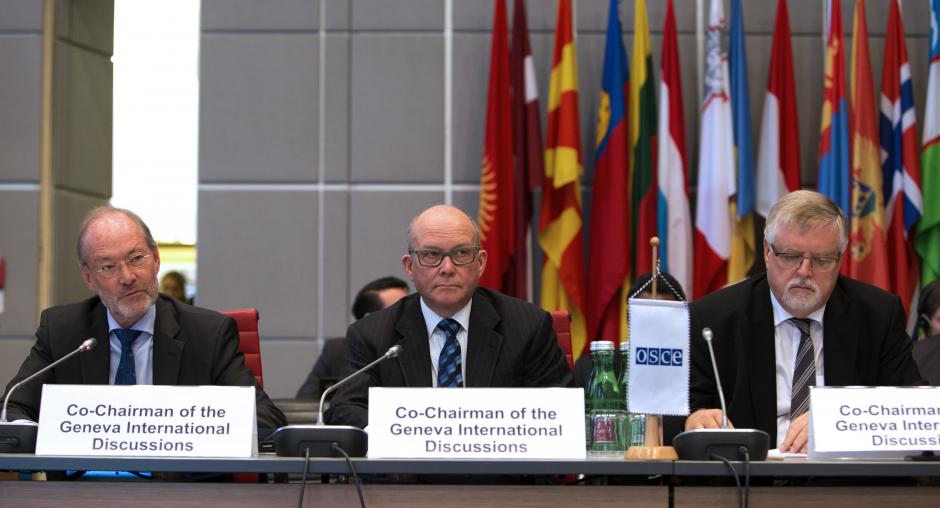Co-chairs of Geneva International Discussions urge participants to build on the progress over the last year to move dialogue forward

VIENNA, 3 November 2016 - Addressing the OSCE Permanent Council today, the Co-Chairs of the Geneva International Discussions (GID) - Special Representative of the OSCE Chairperson-in-Office for the South Caucasus Guenther Baechler, UN Representative Antti Turunen and EU Special Representative Herbert Salber - highlighted some progress in the GID.
The GID - launched eight years ago - bring together participants from Tbilisi, Moscow, Washington, Tskhinvali and Sukhumi to address the consequences of the 2008 conflict in Georgia.
Baechler said: "The Co-Chairs remain determined to give new impetus to reflections on a joint non-use of force statement and to continue discussions on displaced people as an integral part of the GID."
Established in 2009 as a result of the GID process, the Ergneti and Gali Incident Prevention and Response Mechanisms (IPRM) provide a forum to discuss issues including the identification of potential risks, the follow-up of incidents and the exchange of information, as well as problems affecting the communities on a daily basis. Meetings of the Gali IPRM resumed in May this year after a four-year suspension.
Turunen emphasized the importance of the GID and IRPMs as platforms of evolving dialogue between participants. Referring to the resumption of meetings of the Gali IPRM, Turunen said that all participants have engaged in its work "in a professional and business-like mode." He noted the strong co-operation between the UN, OSCE and EU in working to enhance peace and stability in the region and provide the building blocks for confidence-building.
Salber noted that the Geneva Discussions remain the prime forum to discuss security-related problems. He observed that discussions have become more open and substantial. Several positive steps since last year's address by the co-chairs, such as the simultaneous release of long-term detainees from Tskhinvali, Sukhumi and Tbilisi, and renewed work on issues related to missing persons, are promising signs for further progress in the Geneva process.
